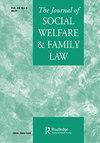敌对和无能:政府对庇护支持的态度
IF 0.6
Q2 LAW
引用次数: 0
摘要
根据1999年《移民和庇护法》第95条,政府有义务向原本一贫如洗的寻求庇护者提供支持和住所。这一责任源于《欧盟接收条件指令》(2003/9/EC;重新制定为第2013/33/EU号指令),该指令仍然是“保留法律”——《欧盟基本权利宪章》和《欧洲人权公约》第3条,在适用工作除外的情况下,防止不人道和有辱人格的待遇(R(难民行动)诉SSHD[2014]EWHC 1033(行政);R(关于Limbuela的申请)v SSHD(2006)1 AC 396)。对工作的限制意味着福利支持是必要的,因为一旦被迫移民抵达英国,他们实际上就被困了:由于担心受到迫害,他们无法返回原籍国,在英国脱欧和英国退出《都柏林条例》后,他们也无法再返回欧洲其他过渡国家。因此,寻求庇护者任由英国政府摆布,在过去三十年里,英国政府一直在监督他们的生活水平缓慢下降(Bales 2013,Mayblin 20172019)。R(应CB的申请)v SSHD【2022】EWHC 3329(行政)案中的索赔人基于两个理由对s.95支持水平提出质疑。首先,内政部国务秘书(SSHD)在2021年11月做出的上调决定的合法性,该决定改变了寻求庇护者基本生活需求的计算方法,使预期上调从每周41.76英镑降至40.85英镑(高于39.63英镑的基本费率)。其次,自2022年2月21日上调庇护支持率以来,SSHD未能重新考虑或审查庇护支持率的合法性。Fordham J在一项谨慎遵循宪法界限的进步判决中明确表示,SSHD未能履行其为寻求庇护者提供基本生活需求的法定义务,并忽视了对支付此类费用所需金额的仔细考虑。考虑到英国境内对强迫移民施加的日益恶劣的环境,以及对庇护权的侮辱,这一发现或许并不令人惊讶。索赔人是一名32岁的尼日利亚国民,于2021年4月与她的三个6岁、7岁和8岁的孩子一起抵达英国,其中最大的一个患有脑瘫本文章由计算机程序翻译,如有差异,请以英文原文为准。
Hostile and inept: the government’s approach to asylum support
Under section 95 of the Immigration and Asylum Act 1999 (IAA 1999), the Government are obliged to provide support and accommodation to asylum seekers who would otherwise be destitute. This responsibility stems from the EU Reception Conditions Directive (2003/9/EC; recast as Directive 2013/33/EU) – which remains ‘retained law’ – the Charter of Fundamental Rights of the European Union and Article 3 of the ECHR, to prevent inhuman and degrading treatment, where work exclusions apply (R (Refugee Action) v SSHD [2014] EWHC 1033 (Admin); R (on the application of Limbuela) v SSHD (2006) 1 AC 396). Restrictions on working mean that welfare support is necessary because once forced migrants arrive in the UK, they are effectively trapped: they cannot return to their countries of origin for fear of persecution and can no longer be returned to other transitional countries in Europe following Brexit and the UK’s withdrawal from the Dublin Regulation. Asylum seekers are thereby at the mercy of the UK Government who over the last three decades have overseen the slow degradation of their living standards (Bales 2013, Mayblin 2017, 2019). The claimant in R (on the application of CB) v SSHD [2022] EWHC 3329 (Admin) challenged s.95 support levels on two grounds. Firstly, the lawfulness of an uprating decision made by the Secretary of State for the Home Department (SSHD) in November 2021 which changed the methodology for calculating the cost of essential living needs for asylum seekers, bringing the expected uprating down from £41.76 to £40.85 per week (up from the base rate of £39.63). Secondly, the lawfulness of the SSHD’s failure to reconsider or review the rate of asylum support since the uprating was implemented on 21 February 2022. In a progressive judgment that carefully treads constitutional boundaries, Fordham J makes clear that the SSHD failed in upholding their statutory duty to provide for the essential living needs of asylum seekers and neglected careful consideration of the amount needed to cover such costs. This finding is perhaps unsurprising taking into account the increasingly hostile environment imposed upon forced migrants within the UK, and the pending ‘Illegal Migration Bill’ which is an affront to the right to asylum. The claimant was a 32-year-old Nigerian national who arrived in the UK in April 2021 alongside her three children aged 6, 7 and 8, the eldest of whom has cerebral palsy and
求助全文
通过发布文献求助,成功后即可免费获取论文全文。
去求助
来源期刊
CiteScore
2.00
自引率
13.30%
发文量
52
期刊介绍:
The Journal of Social Welfare & Family Law is concerned with social and family law and policy in a UK, European and international context. The policy of the Editors and of the Editorial Board is to provide an interdisciplinary forum to which academics and professionals working in the social welfare and related fields may turn for guidance, comment and informed debate. Features: •Articles •Cases •European Section •Current Development •Ombudsman"s Section •Book Reviews

 求助内容:
求助内容: 应助结果提醒方式:
应助结果提醒方式:


